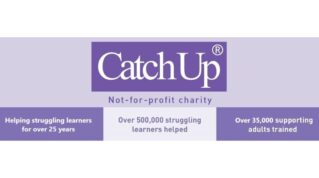In response to updated regulatory guidance on safeguarding against sexual harassment and crimes within education settings, UK training provider The Skills Network steps up to the mark to help tackle the educator skills gap.
The Skills Network have developed a new sexual consent course in response to the updated guidance to safeguarding practices in education settings. This comes following a shocking number of anonymous sexual abuse testimonials were submitted to the website Everyone’s Invited, exposing the scale of sexual harassment experienced by young people throughout the UK.
The Skills Network’s Sexual Consent course provides a training provision developed and designed to cover four modules:
- Defining consent
- Defining sexual harassment, sexual assault and their myths and misconceptions
- How do you gain consent
- Responding to events and how to signpost
The course provides training on key legal information, including the definitions of consent, sexual assault, and harassment as well as information on the five F’s (Fight, Flight, Friend, Flop and Freeze). It also provides key information on identifying and responding to assaults, providing support to education providers nationally in fighting the harassment facing young people today.
The content can be deployed to all staff and students via The Skills Network’s award-winning Learner Management System EQUAL which provides a range of desirable benefits for both educators and learners. EQUAL is a cloud-based learning platform that allows education institutions to create, deliver, and track online learning. The platform uses videos, virtual tutorials, and online assessments to cater for a variety of learning styles.
The organisation has recently launched a game-changing diagnostic tool benefitting the learning journey. The tool assesses a learner’s strengths and capabilities prior to starting a course, allowing for the development of a personalised curriculum plan that designs a learner’s educational journey around their individual needs, gaps and learning preferences. This, in turn, allows for extra time on modules where an individual lacks knowledge, but less time on a module where they may have good prior knowledge.
Similarly, The Skills Network’s course is auto assessed, offering education providers and employers the confidence that the content is understood by those who sit the course. The Skills Network also provide all course learners with a designated Learning Support Advisor to track and support their progress throughout their learning journey. This unique approach to distanced learning offered by The Skills Network has contributed to a pass rate of 90% on their training courses.

The development of the course comes following thousands of anonymous sexual abuse testimonials were submitted to a website called Everyone’s Invited, after Soma Sara, 22, began sharing her experiences of sexual harassment on Instagram. Her experiences began in her early teens and continued throughout her time at school and university. Quickly, Soma was inundated with accounts of similar abuse stories, prompting her decision to start the website.
The thousands of accounts of the sexual harassment endured by young people in education settings forced the regulatory body Ofsted to conduct a review of the safeguarding processes in place within education settings across the country. According to the government website the review was expected to look at whether schools and colleges needed further support in teaching about sex and relationships, and whether current inspection regimes in both state and private schools were robust enough on the issue of sexual abuse. Thirty-two schools and colleges, as well as over 900 children and young people were involved in the review which primarily explored the issues surrounding “peer-on-peer sexual harassment and sexual violence” said the government website.
The review presented shocking results. According to the government website “for some children, the incidents [of sexual harassment] are so commonplace that they see no point in reporting them”. Findings highlighted that 90% of girls, and nearly 50% of boys said “being sent explicit pictures or videos of things they did not want to see happens a lot or sometimes to them or their peers” said the government website. Worse still, the review found that many of the teachers and leaders within education settings underestimated the scale of the sexual harassment facing young people. “They either did not identify sexual harassment and sexualised language as problematic, or they were unaware they were happening and consistently underestimated the prevalence of online sexual abuse” said the government website.
Nationally the problem of sexual harassment and crimes is extensive. According to the NSPCC, a shocking 31% of young women aged 18-24 report having experienced sexual abuse in childhood. Similarly, research conducted by the NSPCC which involved 2,275 young people aged 11-17 who were asked about their experiences of sexual abuse, suggests that around 1 in 20 children in the UK have been sexually abused and the issue is only growing. Nationally collected statistics suggest that in the year ending March 2020 there had been an increase of approximately 267% of sexual abuse cases since 2013. One quarter of all child sexual abuse involved a perpetrator under the age of 18 and a disproportionate number of girls are affected by these crimes, with 90% of recorded offences of rape in 2018 to 2019 in children aged 13 to 15 being committed against girls.
Ofsted’s review identified numerous areas of concern within education settings. The regulatory body has advised of numerous changes in pursuit of preventing such crimes and harassment against children and young people nationally. In response to the crisis the Department of Education has published a draft of revised statutory guidance on keeping children safe in education settings which comes into effect in September. The guidance offers 60 updates, strengthening the protocol for handling sexual misconduct in education settings.
In pursuit of developing a culture that impedes the capacity for sexual harassment and crimes, Ofsted and ISI now explicitly offer inspectors powers to address how education providers are managing sexual abuse and harassment.

Ofsted advised that education providers should lead with a whole school/college approach in developing a culture that will not tolerate sexual harassment and abuse. This involves staff modelling “respectful and appropriate behavior, where children and young people are clear about what is acceptable and unacceptable behavior, and where they are confident to ask for help and support when they need it” said the government website.
- Now, guidance suggests a need for “a carefully sequenced RSHE curriculum, based on the Department for Education’s new statutory guidance” said the government website. This specifically involves education on sexual harassment and sexual violence both online and offline.
- More training for teachers in delivering the highest quality RSHE education
- High level record-keeping and analysing of sexual misconduct to identify concerning behavior and intervene early.
- An approach to behavior which includes appropriate sanctions to re-enforce the zero-tolerance policy of such behavior
- Working with Learning Support Practitioners to provide young people with support should they need it
- Support for safeguarding leads to ensure the highest quality safeguarding provisions
- Training to ensure all staff can better understand the definitions of sexual harassment of all natures, identify peer-on-peer sexual abuse and consistently uphold high standards in response to sexual harassment of all natures.
In response to the crisis the demand for training content in this area is high and award-winning training provider The Skills Network is one of the first to have produced an expert sexual consent course.
Mark Dawe, CEO of The Skills Network says: “Ofsted’s recent findings, following a review of the safeguarding policies within UK schools, is deeply concerning. The findings highlight a severe gap in the staff training and skills of our educators nationally. It is now the responsibility of all training providers to work to fill this gap and support education providers with the delivery of the highest quality training content on the issues raised.
“Here at The Skills Network, we are proud to be leading in the development of such content with our new sexual consent course, launching in September. Through the development of this course, we hope that all education providers can obtain the skills to protect and support children and young people, ensuring the safest and happiest experience as they progress through their time in education”.
For more information on The Skills Network’s course on sexual consent and to sign up click here.
















Your thoughts